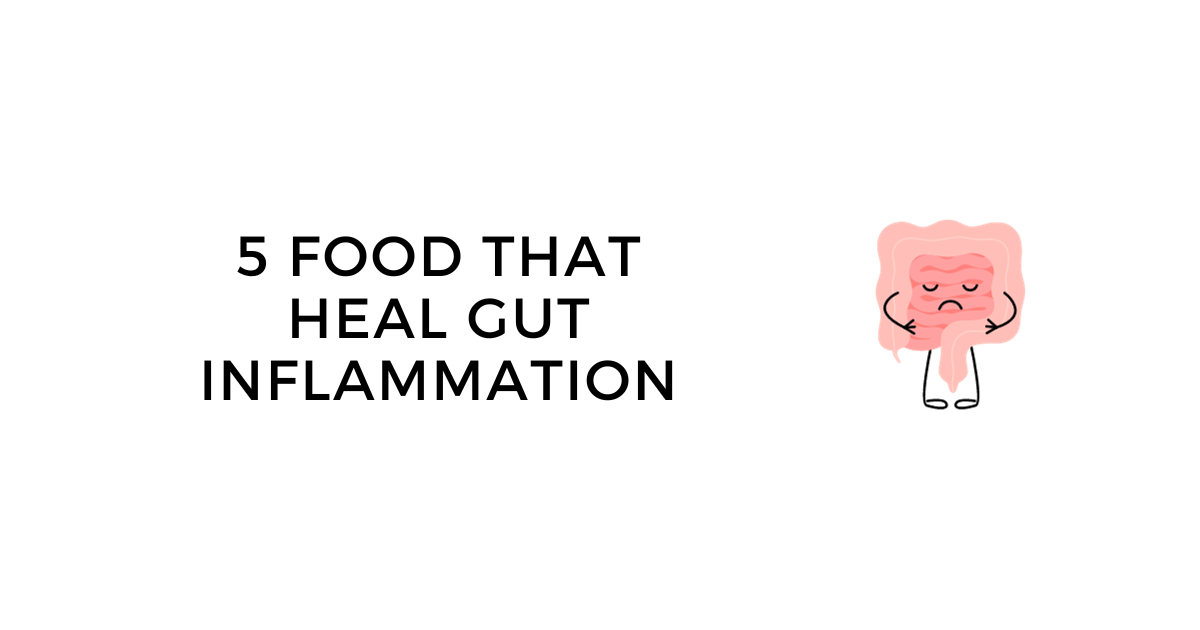
5 Foods That Heal Gut Inflammation: Best Foods to Naturally Repair
Food That Heals Stomach Lining
The gut is a primary organ that interacts with the body in more ways than we realize.
It's where our feelings and emotions are processed and where nutrients enter our bodies.
But when our gut health goes array, digestion suffers and our GI tract gets inflamed. The good news is that you can heal your gut by eating certain foods and removing other harmful ones.
In this article, you'll learn five of the best and worst food types for gut function.
Before we get started, I have to mention that the absolute best food for your gut is bone broth. Bluebird Provisions Chicken is the best option because it is high in glycine (3g) and collagen (10g) to heal you leaky gut.
5 Best Foods That Heal Gut Inflammation
The 5 best foods for gut health are fermented foods, bone broth, leafy greens and yogurt. Let's go through each of these in detail because... food is medicine after al.
Bone broth
Bone broth has the perfect amino acids to help you digest food by making your GI tract and gut lining more resilient.
Three amino acids that improve digestibility are glutamine, glycine and proline. Glutamine is shown to help repair the cells in your gut when damaged (1).
Glycine makes up one third of properly made products. It helps regulate inflammation in your small intestine and GI tract (2).
Glycine reduces inflammation by rebuilding connective tissue in your gut. It literally protects your intestinal cells from unwanted toxins from poorly digested food (3).
The most promising part of glycine is the research showing it to be useful to manage Crohn’s disease, colitis, diverticulitis and inflammatory bowel diseases (4).
Proline fights inflammation and has many healing properties to deal with common gut health problems without elimination diets.
The best one out there for gut health is Bluebird Provisions. Try some today and see how you feel after a week.
Eat Probiotic Foods
Fermented things like sauerkraut, pickles, etc are full of natural probiotics. They are naturally helpful live bacteria that provide powerful health benefits (5).
They’re a great way to maintain your digestive health by complementing your existing gut microbes or flora.
Gut bugs are important is it is your first defence against potentially harmful toxins you ingest from food and the environment.
Probiotics like those in kimchi and sauerkraut also directly improve the absorption of food (6). They also increase your gut’s ability to absorb nutrition from food, helping to make food more digestible (7).
It's always good to have some in a jar on your kitchen table to add a side dish to your meals. A bit goes a long way to adding more diversity to your diet. Kombucha is not as good as real food because of the added sugar.
How does vegetable fermentation work?
Fermentation works by introducing good bacteria into your digestive system. It is a process that predates human civilization, and has been used for centuries to preserve food and make it more digestible.
The fermentation process can be applied to veggies, fruits, grains and legumes. It involves soaking or sprouting the food until it is soft enough to eat.
Yeast and bacteria found in things like cabbage are exposed to your hands and the air.
Probiotics feed off the naturally occurring sugar and fiber in the cabbage. Gradually the probiotics in the jar converts them into organic acids and CO2 via an enzyme reaction.
The cabbage, the jar and time creates perfect conditions for the growth of more gut healing probiotics.
Buying Tips
If you are going to eat any fermented food for probiotic benefits, make sure they are not pasteurized. It kills the bacteria, rendering them useless.
Pasteurization is a method to preserve foods using heat or pressure so that they can be shelf stable.
A good rule of thumb if you’re purchasing fermented items is to ensure it’s at least in the fridge section of the market.
From there you want to read labels. Avoid products with added preservatives. Ingredients should be very short: cabbage, salt.
You can look for something like “live and active cultures” on the label to be sure.
Kefir or Gut-Friendly Dairy
Kefir is a rather thick fermented probiotic drink. Its fermented by adding milk to special grains.
The great thing is that you can ferment it with coconut milk or water if you’re out on dairy like me.
There was a point a couple years ago when I made it with coconut milk every week or so. I'm lactose intolerant.
The grains (not seeds) multiply with each fermentation. Meaning you can give some to a friend who shares your fermentation habits. Maybe don’t bring to a potluck.
Kefir is one of the most probiotic rich foods available to you and I. The gut and digestive health benefits are well researched.
You don't eat the grains shown below. They're just used for fermentation.
It has unique antimicrobial properties which are shown to help heal issues in the gut like colitis (8). It is also shown to help with both constipation and infections that cause ulcers like H. pylori (9, 10).
I’ll mention that if you tolerate dairy then yogurt is a great source of probiotics. Most yogurt is pasteurized contains added sugar, so make sure to read your labels. Opt for full fat with no added sugar. And be careful with cheese.
Vegetables For Prebiotic Nutrients
As if you needed another reason to eat your vegetables. Some may taste questionable to you, but they are a great source of nutrition and fiber, both of which aid your GI tract.
They have both soluble and insoluble fiber.
You want a variety of starchy and non-starchy veggies prepared in different ways as both fiber types have digestive benefits.
This helps feed your gut bacteria with a variety of prebiotics to feast on. Prebiotics help grow the good bacteria in your gut.
Insoluble fiber comes mostly from dark leafy greens. Leafy greens are also packed with vitamins and antioxidants that help to keep you regular. Some example are dandelion greens or swiss chard. Make your self a beautiful salad!
Insoluble fiber keeps you regular. Why? Because it does not dissolve in water. These food sources pass through your gut without taking up long term residence.
Just be careful to not overdo it with insoluble fiber.
You may think you’re getting tons of minerals. But too much of a good thing is bad in this case. Also be careful with too many grains, beans, lentils and gluten sources (if you are sensitive).
If you have an inflamed or Leaky Gut, large amounts of leafy greens (insoluble) will further disrupt things.
Healing Foods for Gut Bacteria Specifically
Soluble fiber is found in root veggies and more starchy plants like artichokes, asparagus, yams, potatoes, turnips and carrots. Unlike insoluble, soluble fiber draws water into your gut.
Soluble fiber gently sweeps things through our digestive system, often forming a gel.
This helps to soften your bowel movements and provides a great bacteria source for your large intestine (11).
Start slow and prepare them correctly when looking to increase your soluble and insoluble fiber intake.
You don’t want to nuke the system (and your toilet) by going from 5g to 30g of raw fiber sources per day. Not advised. Gradually build up and drink water.
If you have GI distress with raw foods then it’s best to gently steam, sauté or roast your plants.
Better yet you can cook your veggies in stock to make soups. This way you limit the nutrient loss (like potassium, magnesium and manganese) from cooking since you’re drinking all the liquid anyways.
Ginger For Digestion
Most of you know the old adage, drink it when you have a stomach ache then all is better. There is a ton of merit to this!
Fun fact is that it belongs to the Zingiberaceae family, alongside cardamom and turmeric.
It's been used as a medicinal herb for thousands of years for the treatment of colds, nausea, arthritis, migraines and hypertension.
In addition to the digestive benefits, it’s also been used to treat cardiovascular disease, some cancers, pain and inflammatory conditions (12).
However the most well establishment use is for reducing nausea.
The unique blend of compounds in ginger help stimulate your digestion. It does this by accelerating gastric emptying which relieves any gastrointestinal (GI) issues (13).
It gets things moving in your GI tract so that you can digest food properly.
Fresh ginger can be chopped or crushed in savory dishes like curry or dried / crystallized in sweets.
Dried powder is great for flavoring meals. Choose an organic ginger root powder.
If you have time, fresh ginger minced or cut finely makes for a great tea or in smoothies and dressings. Just steep like you would a tea bag.
If my tummy is off, I’ll usually throw some (half a thumb size) chopped raw stuff in whatever food I’m eating and I notice the effects in 15 minutes. Not recommended without some food in their first.
Garlic is also good because of the allicin in it. But the article is getting really long. So I had to leave it out.
Remove These 5 Gut Line Killers
The 5 worst foods for gut health are the following:
- Refined Carbs: Carbohydrate rich foods that are processed to remove minerals and fiber. These include pasta, white bread, rice, breakfast cereals, baked goods and crackers.
- Sugar: Another secret killer because it's hiding in many processed things. This includes sucrose and high fructose corn syrup (in most sweetened drinks).
- Alcohol: The biggest cause of gut inflammation by ay of increasing inflammatory markers like C-Reactive Protein.
- Vegetable Oils: In all processed things and the most overlooked gut killer. Inflammatory vegetable oils include soy, corn, safflower, sunflower, canola and peanut oil.
- Deep Fried Foods: The second worst culprit due to them being cooked in an inflammatory combination of trans fats and vegetable oils.
- Trans fats cause massive inflammatory in our guts and increase LDL cholesterol.
Good for Gut Health Supplements
If food isn't working, you can try these supplements that are good for gut health.
Digestive enzymes
Digestive enzymes are enzymes that your body naturally produces to break down carbohydrates, fats and proteins.
They work by breaking down food into smaller molecules so that your body digest them properly. They also help absorb nutrients from the foods you eat.
The two main types of digestive enzymes are the proteases and the amylases. Proteases break down protein content into smaller peptides, while amylases break down carbohydrates into glucose molecules that can be used by your body for energy.
L-glutamine
L-glutamine is an amino acid your body naturally produces to repair your gut lining. It is found in collagen rich foods and gelatinous meats. It is basically a commodity at this point, so find some online from a quality brand and see if it works for you.
Stomach Acid Supplements
Low stomach acid is associated with a wide variety of health problems, including SIBO H. pylori infections and autoimmune conditions.
These supplements work by increasing stomach acid. The most common are HCl and pepsin, which are available over the counter.
However, taking these supplements can be risky because taking them when your stomach is already producing enough acid can damage the lining of your. It is best to consult your doctor before taking them regularly. You might even get a stool test to be sure.
Probiotics
Probiotics are supplements that contain live microorganisms, such as yeast or Lactobacillus (lactobacilli), that are thought to improve gut health.
I don't have a specific information or recommendations because I have never had success with these, but the studies are strong and many people use them with great success.
Colostrum
Colostrum is a great food that heals the gut lining because it includes proteins and antibodies that help heal the gut lining.
Lifestyle Changes to Improve Gut Health
Diet alone will not improve your gut health. You need to take a holistic approach. For some people, it is the lifestyle changes that make all of the different.
The good news is that there are some simple things you can do or not do to heal things today.
Decrease Uncontrollable Stress
This is an important distinction because our body treats stress we perceive as uncontrollable much worse than stress we can fix. Stress directly messes with your gut health by inflaming the hell out of the whole system.
Exercise
Exercise is the single most beneficial thing you can do for your health. Go for a walk, dance, do some gardening, lift weights or do yoga. It does not need to be vigorous, although that is better. Find something you enjoy and stick with it.
Sleep
Easier said than done, but follow this sleep health tip for a better nights rest.
Quit Smoking For Overall Wellness
Quitting smoking is easier said than done. But I have to list it here. You can do it!
Avoid Air / Environmental Pollution
This includes air pollution and environmental things like mould in our homes. I recently found mould all over my attic and chimney due to moisture and water damage over the years.
I live in a 100 year old house, so it was incredibly concerning to me as an expecting father. We had to bring in mould experts to do air test and remediate all of the mould. Thank goodness we found it when we did.
I would recommend paying for an expert to come into your home to do some air quality tests and check your attic / basement.
How to Eat for a Healthy Gut
What foods heal the gut lining?
Food that heal the gut lining include stock, sauerkraut, kimchi, leafy greens and high quality dairy.
You can also try fatty acids to stimulate peristalsis and gelatin rich foods. You can cook using extra virgin olive oil and eat avocados, salmon, eggs or macadamia nuts to give your immune system plenty of extra nourishment.
How can I heal my gut naturally?
You can heal your gut naturally by minimizing gut killing foods and incorporating more healing things like bone broth into your daily diet.
From here you also need to minimize dangerous lifestyle factors like smoking, excessive drinking, minimizing stress, sleeping better, avoiding environmental pollution and exercise.
What are symptoms of a leaky gut?
Common symptoms of a leaky gut include bloating, gas, brain fog, general fatigue, rashes and headaches. You generally feel sick and low energy for a long period of time without a specific illness. You can also take a gut microbiome test.
Let me discuss a few of these in more detail.
- Bloating: The gut is filled with gas and this can cause bloating and indigestion.
- Gas: When the gut is inflamed, it produces gas, which can cause bloating and abdominal pain.
- Joint pain: It can cause inflammation in your joints which can lead to autoimmune conditions if untreated.
- Fatigue: Being inflamed can cause a lot of general fatigue and brain fog.
- Rashes and Skin Issues: A damaged gut can lead to skin problems, including acne, rashes, eczema, and psoriasis. This is an immune response to stress.
- Low Energy: A leaky gut can lead to thyroid and insulin issues, which can lead to problems with energy levels and sudden weight gain.
These are all due to increase gut permeability. Meaning unwanted food particles are getting out of your GI tract and into your bloodstream, making you sick.
How do I know my gut is healing?
You can tell if your gut is healing when your digestion begins to feel better, your energy increases, your mood improves and you feel sharper and better mentally. Basically when you start to get that pep in your step and begin feeling like yourself. You will know best, and trust you intuition that you are on the right path to health.
Closing Thoughts
If you're looking to heal your gut, you should start by eating more of the right foods and avoiding the wrong ones. Some of the best things for gut health include bone broth, fermented and probiotic-rich foods.
And some of the top gut health killers include sugar, alcohol and vegetable oils.
To get started on your gut-healing journey, try the gut healing chicken bone broth from Bluebird Provisions. You can also find it on Amazon Prime.
What is your favorite food to heal your gut? Leave a comment and let me know so I can add it to this guide.
Images via Dominik Martin, Pille Riin Priske, unsplash. Ajale from Pixabay.
Disclaimer: this information is for educational purposes only and has not been evaluated by the FDA or CFIA. It is not intended to diagnose, treat, cure, or prevent any disease. Please consult your primary care physician for advice on any of this.

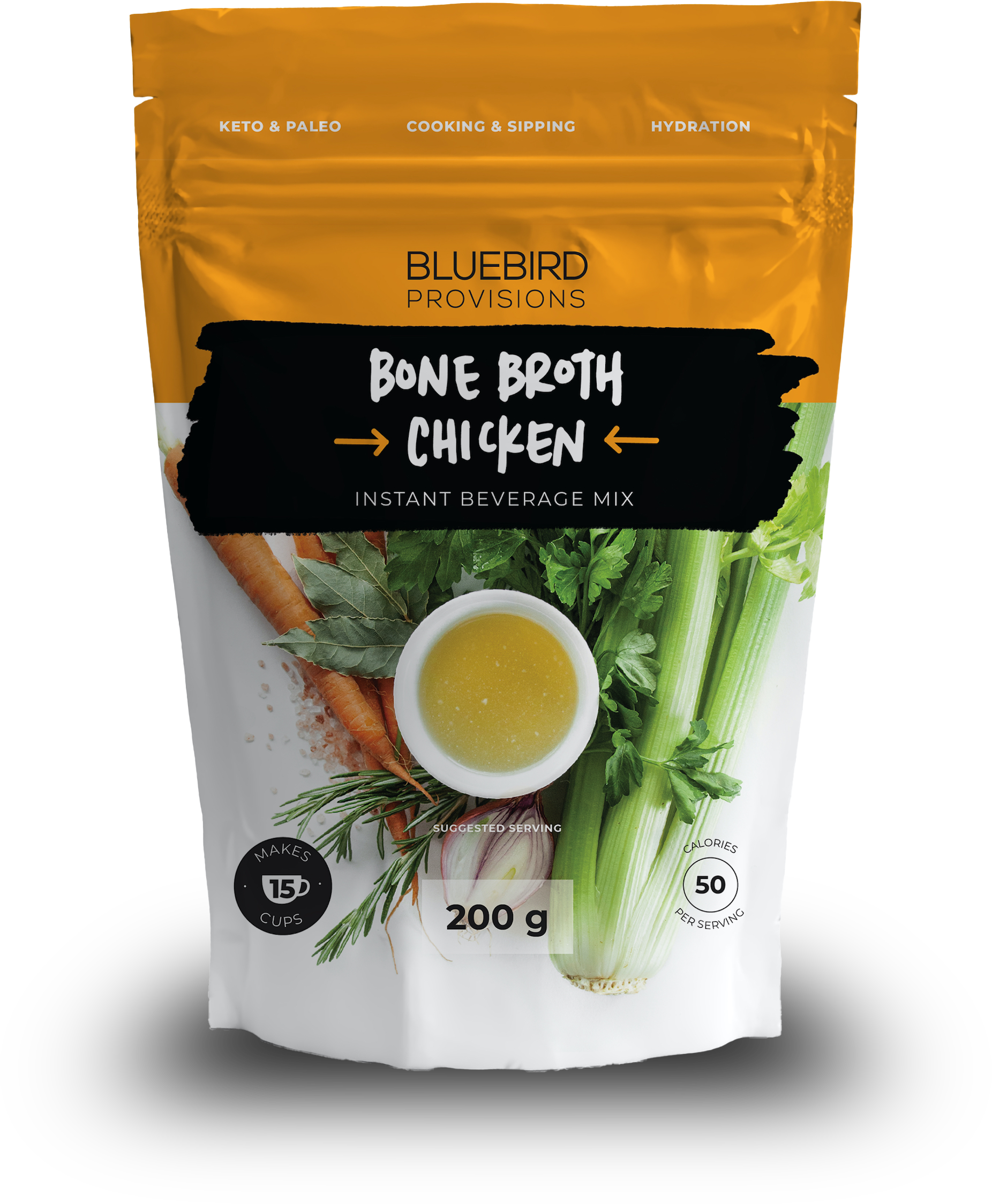
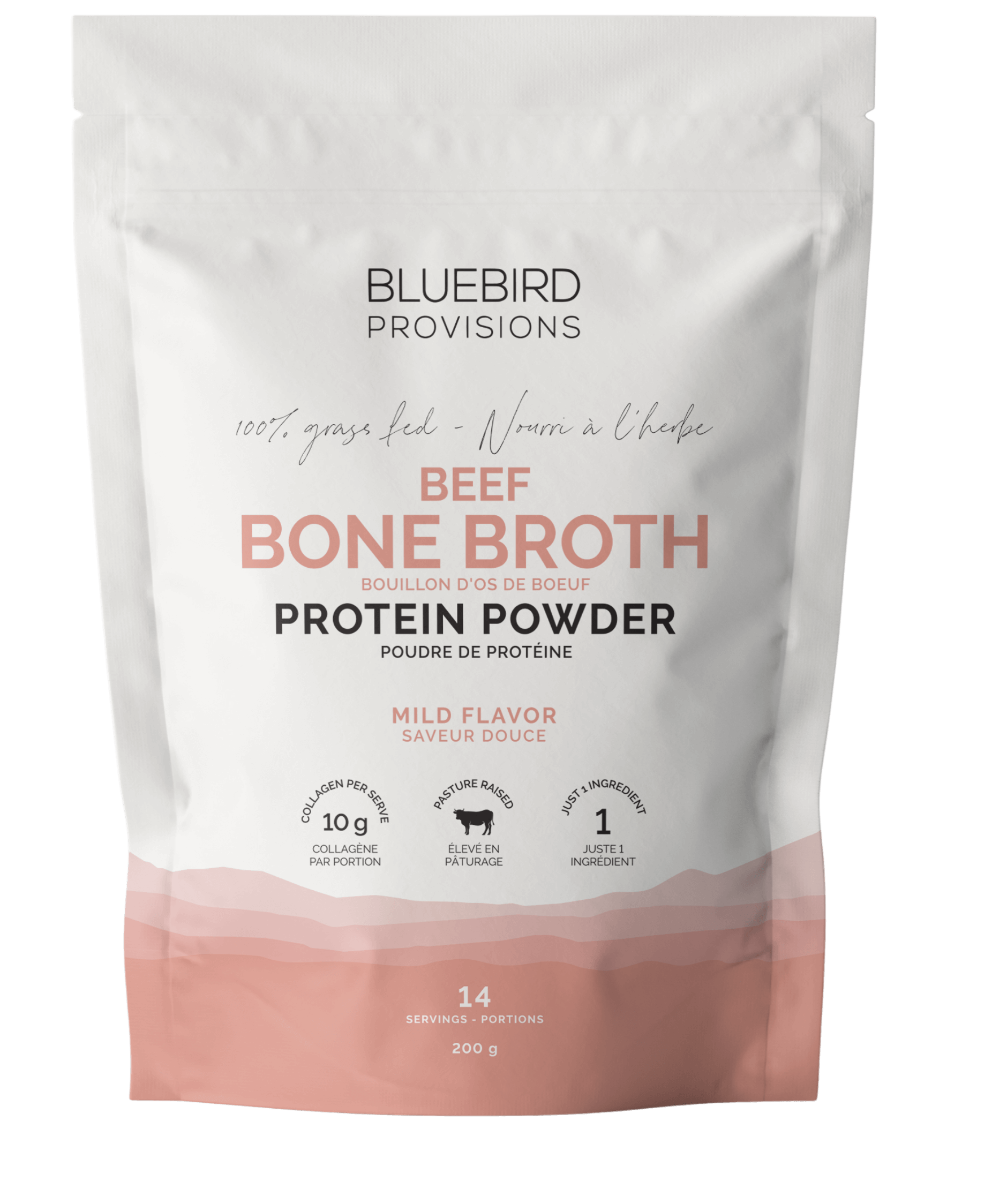
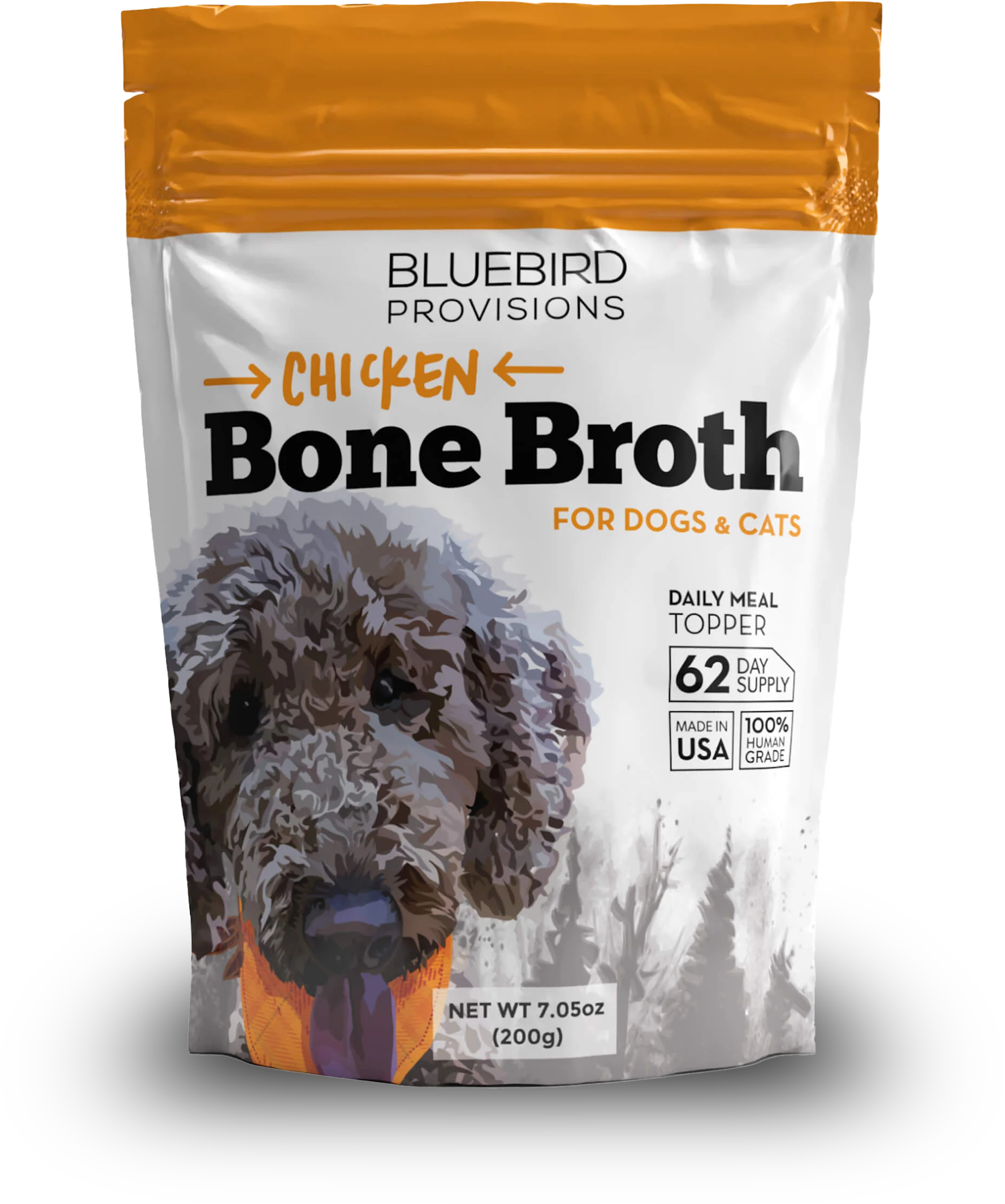
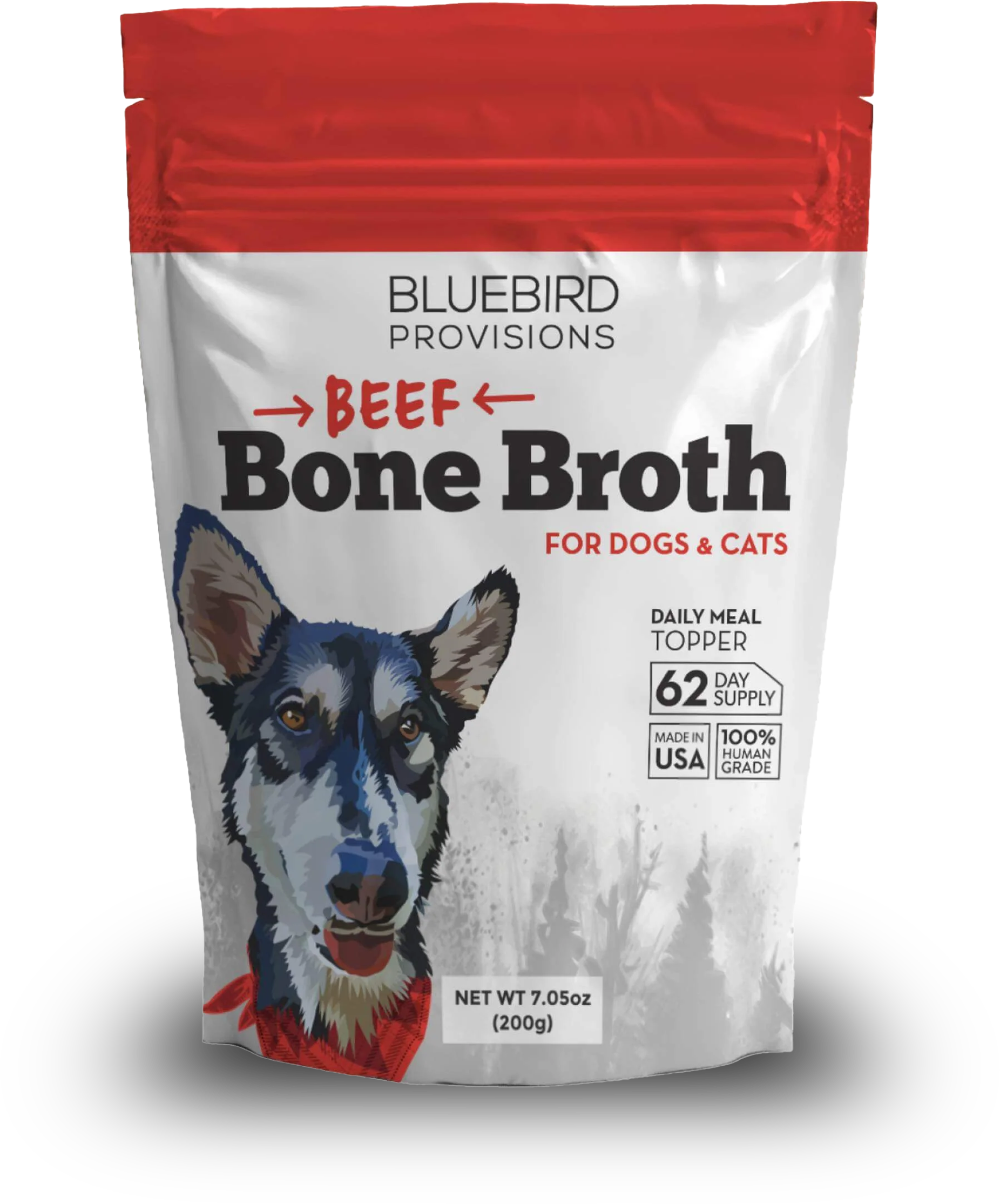
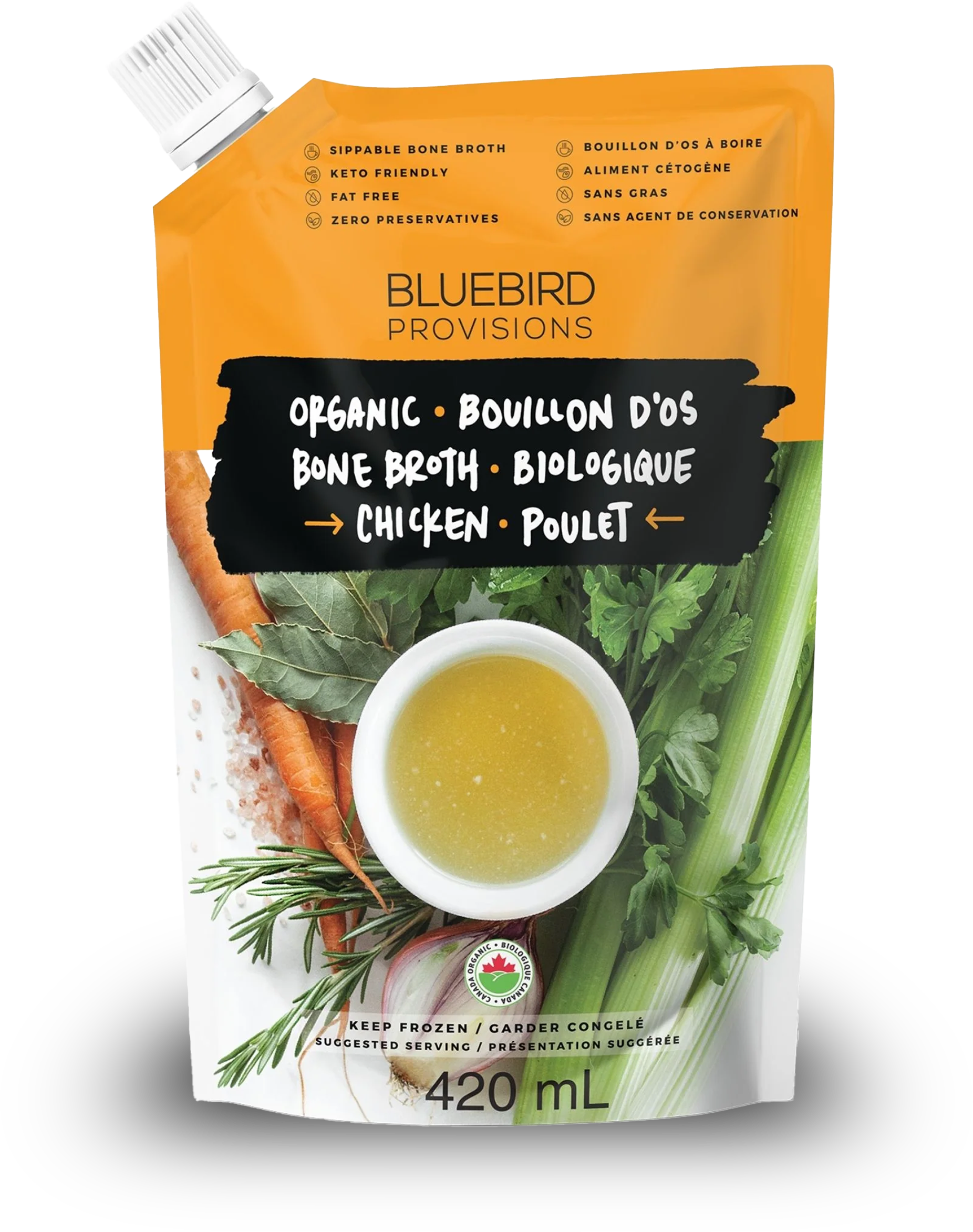
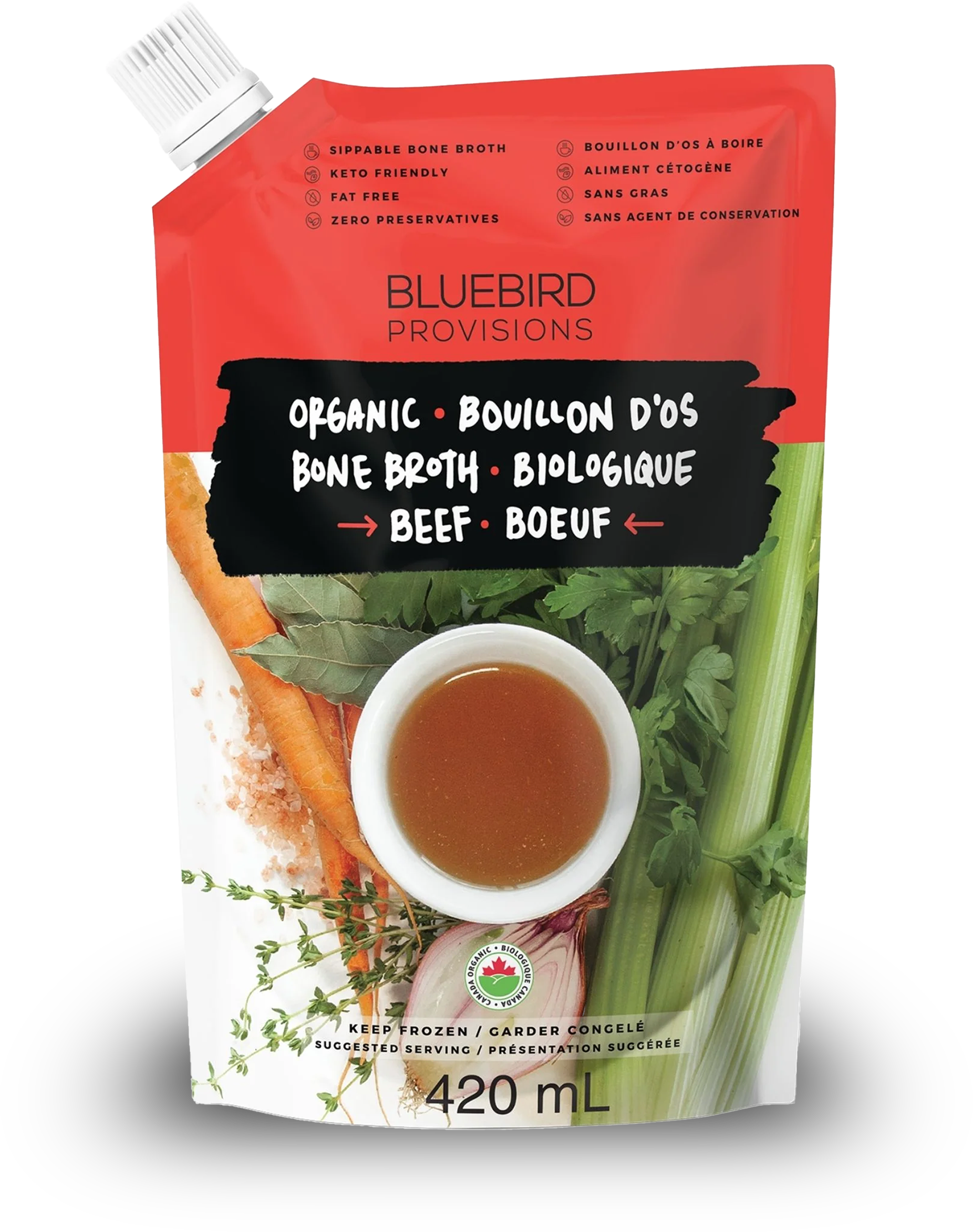








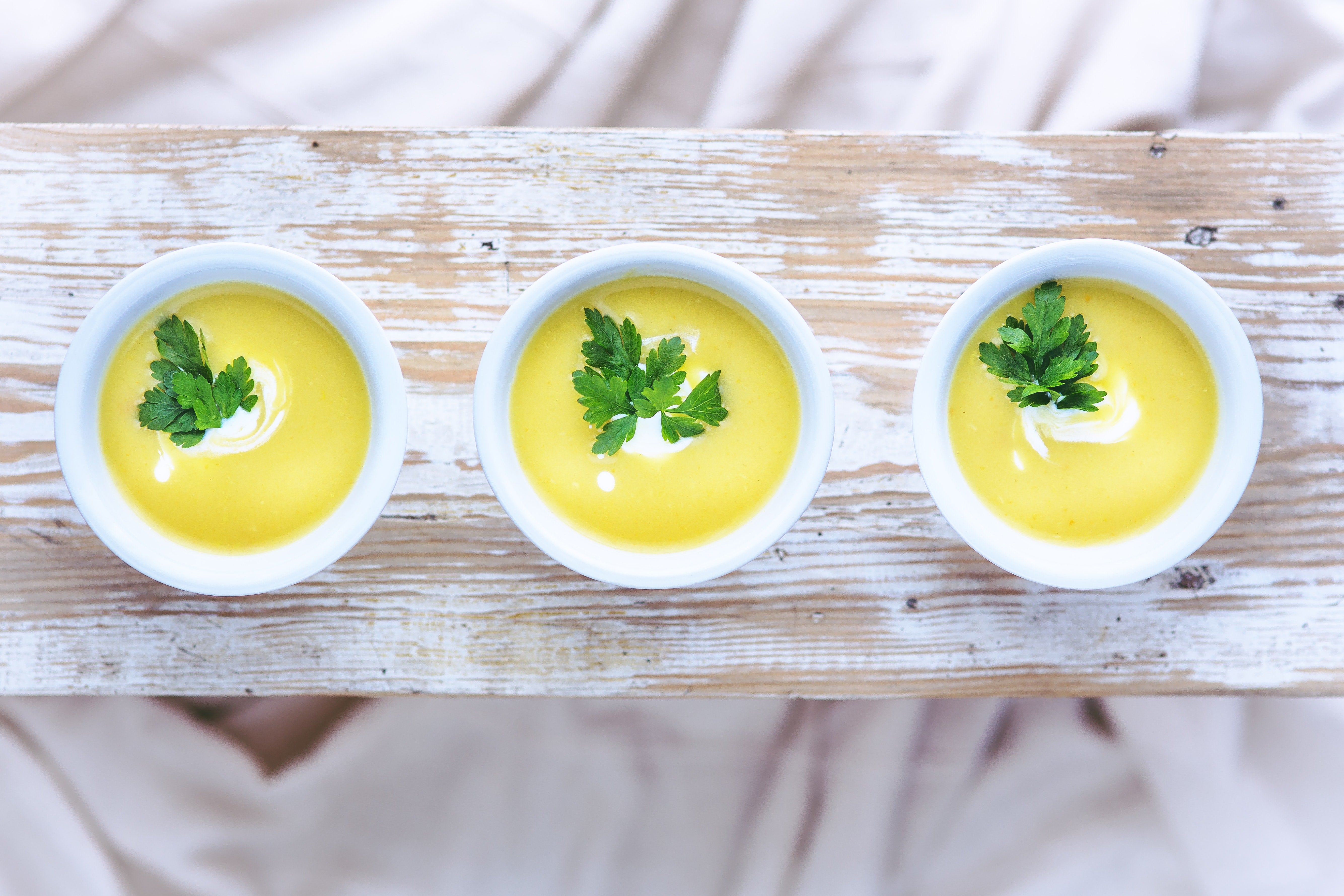
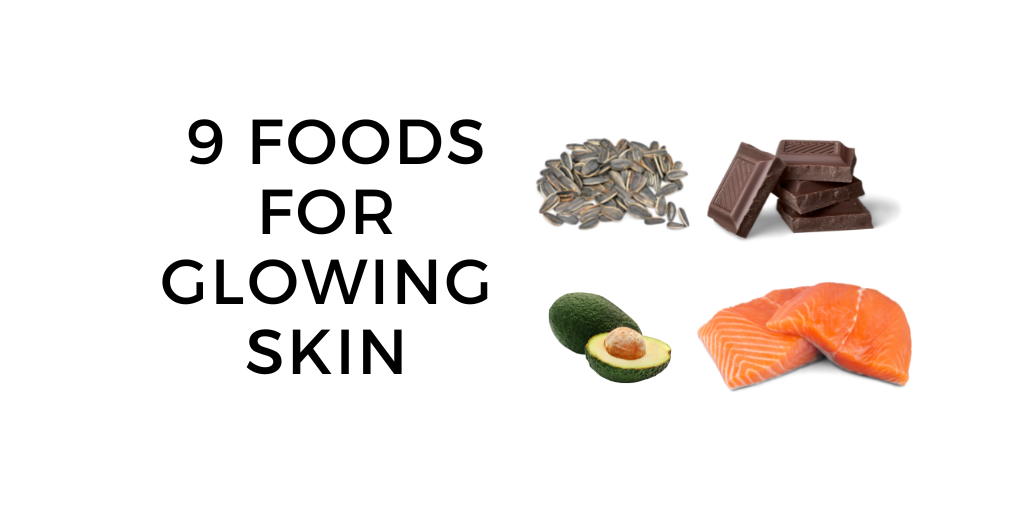
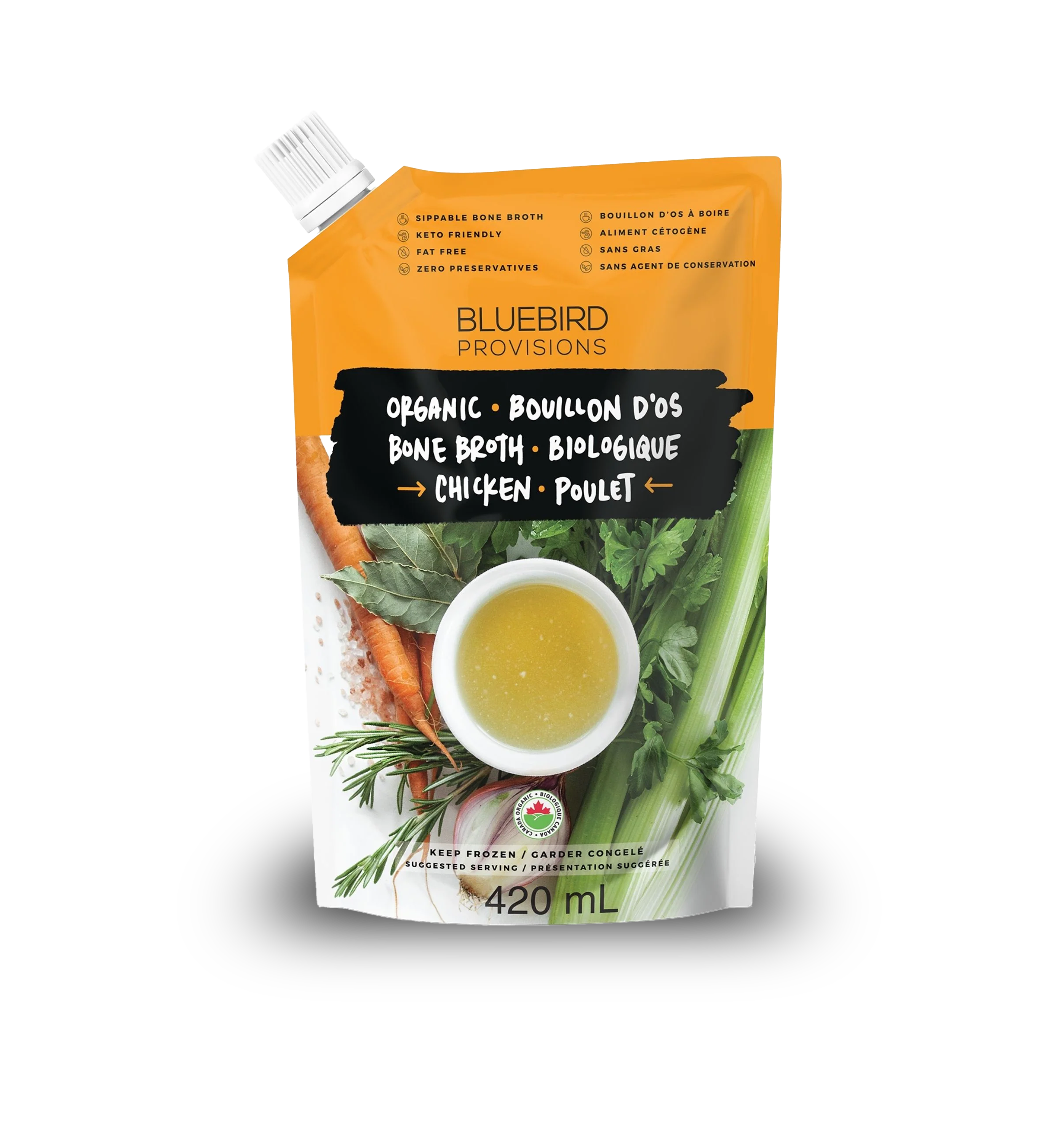
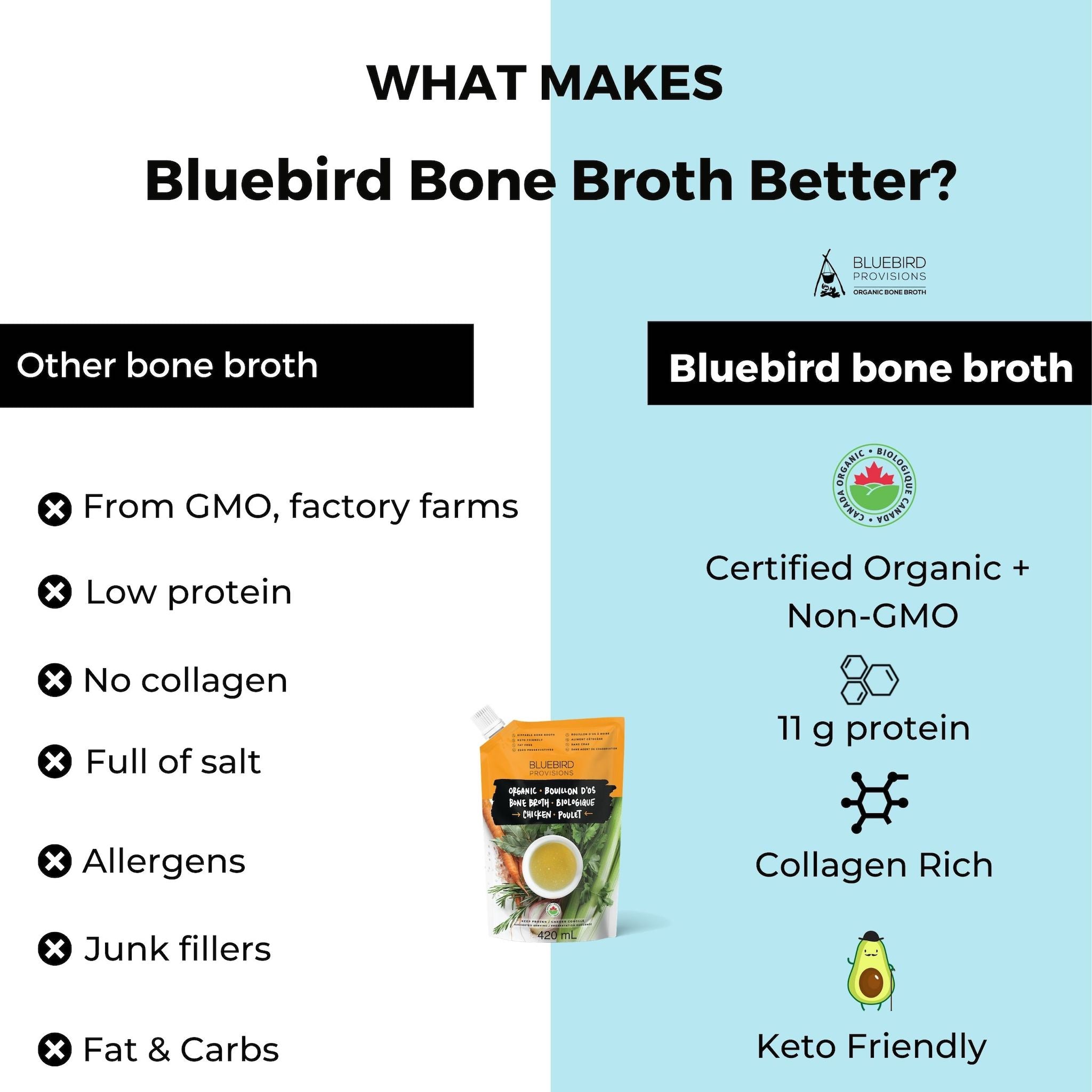
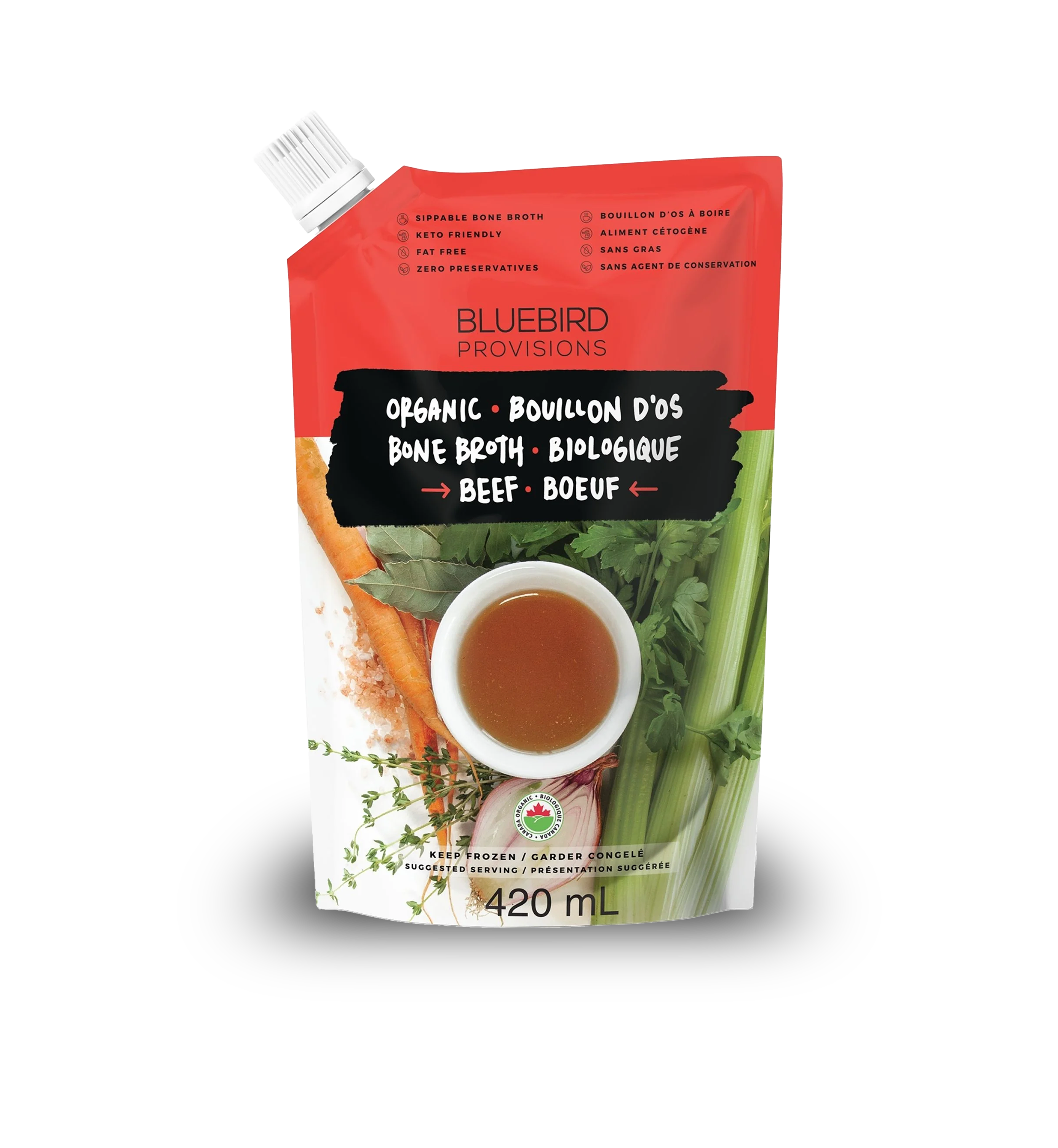
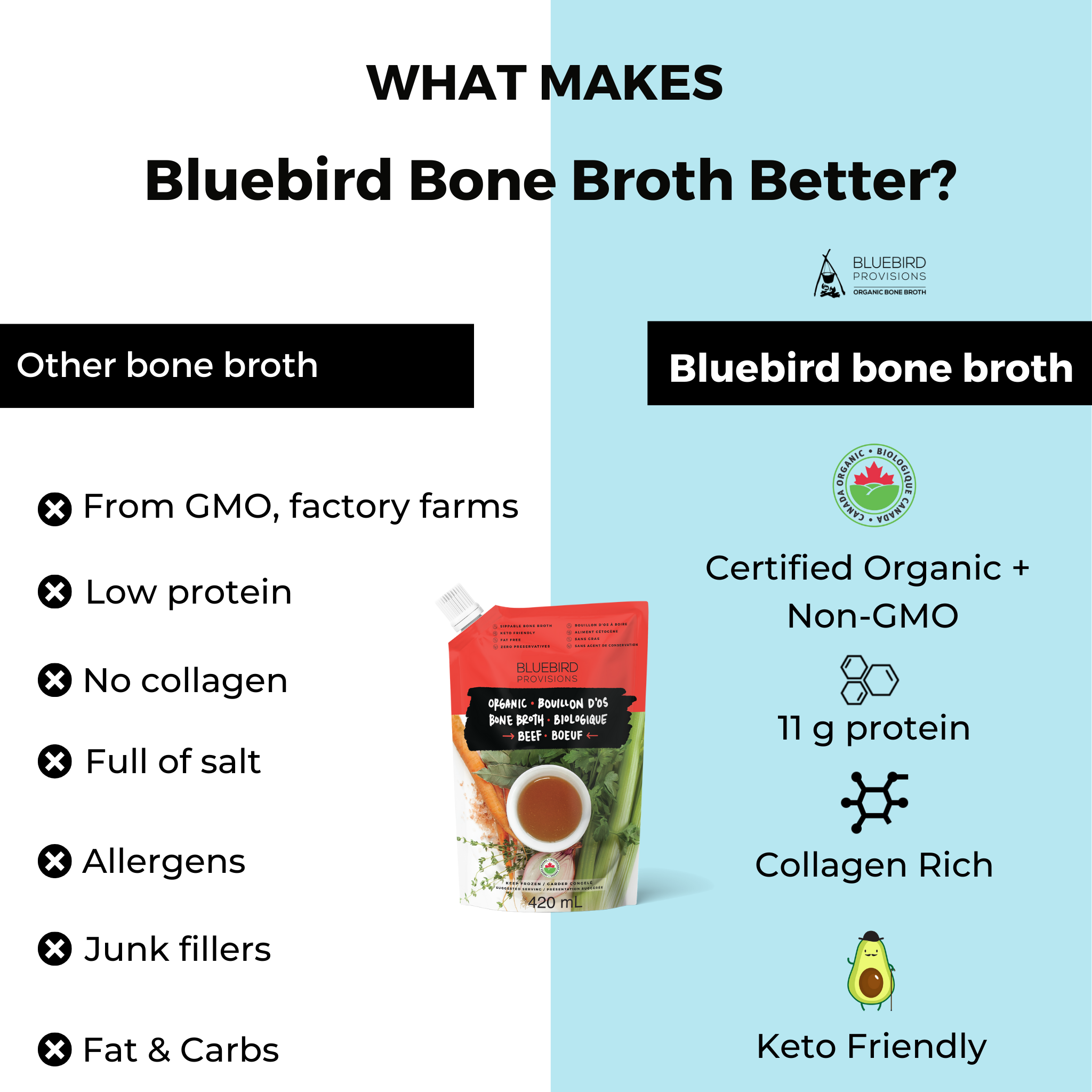
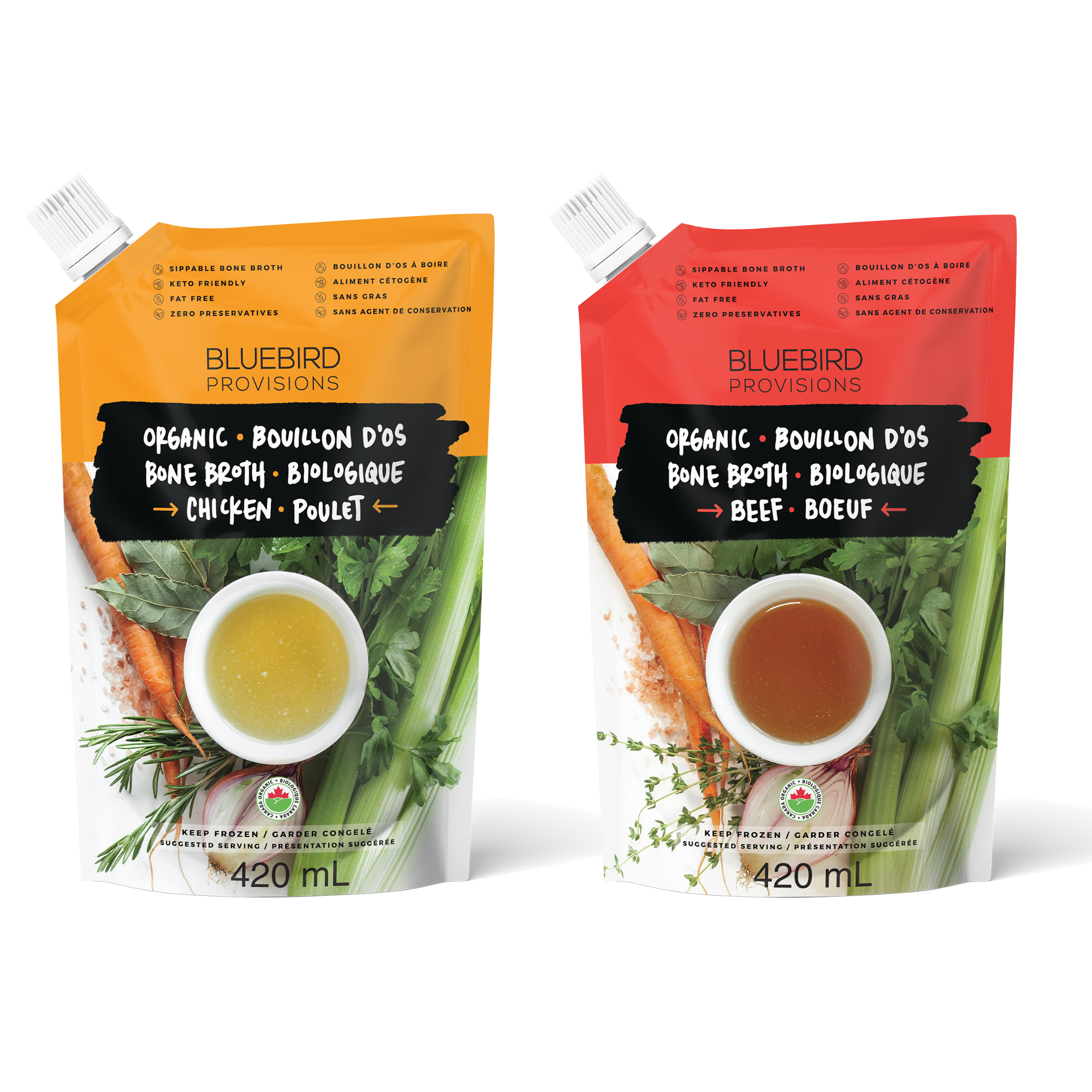
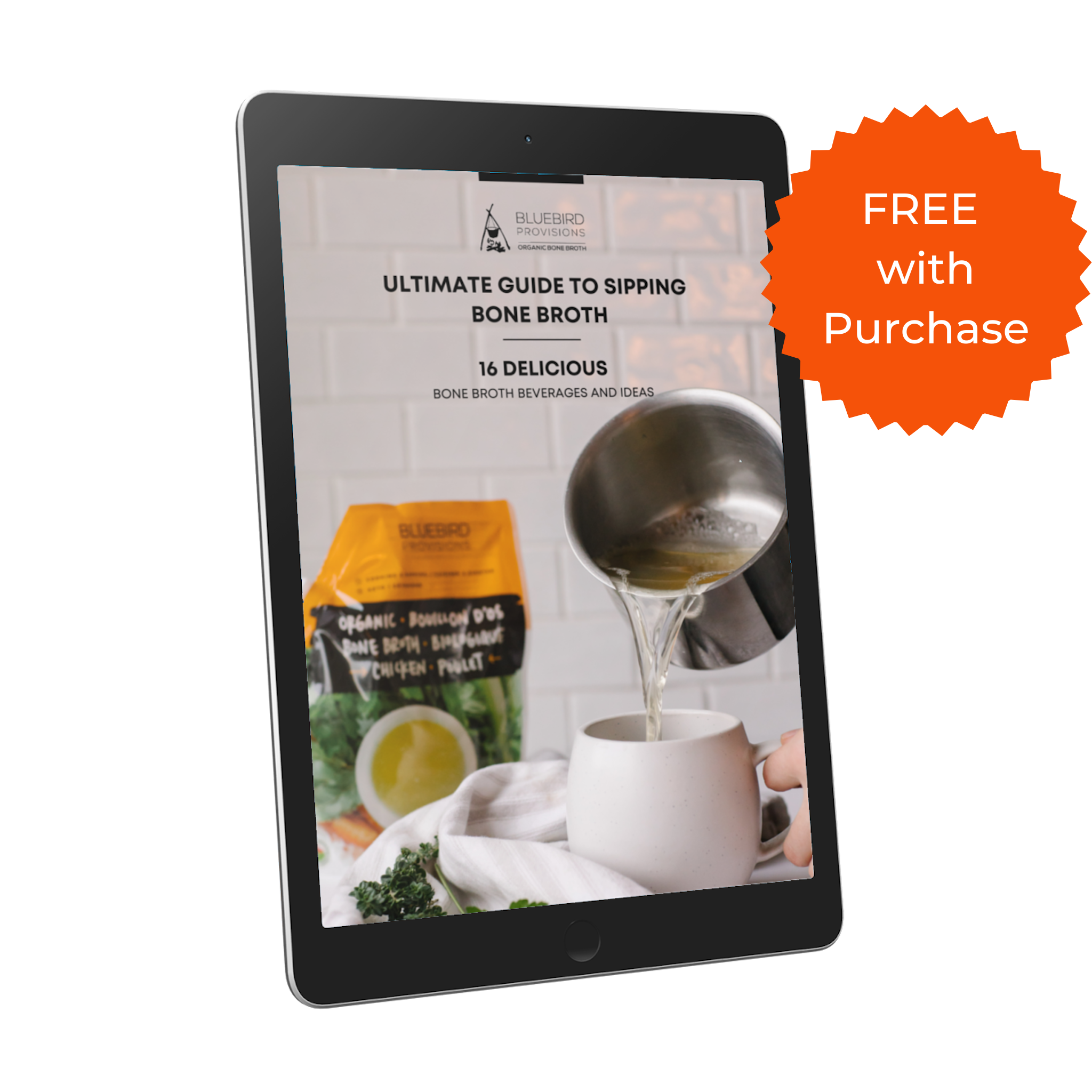
2 comments
Thanks Marita. I will email you now where you can find our bone broth.
Connor Meakin
Hi Connor!
I always enjoy your comments about nutrition and the great advise you give.
I would like to know in what super markets are you selling your broth these days.I look for them from time to time but it is not easy to find them.
Best regards.
Marita
Marita Anderson
Leave a comment
This site is protected by hCaptcha and the hCaptcha Privacy Policy and Terms of Service apply.